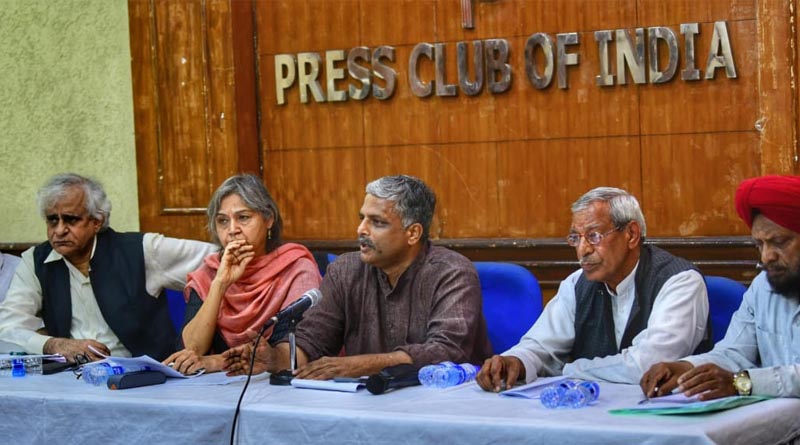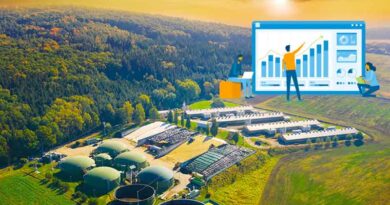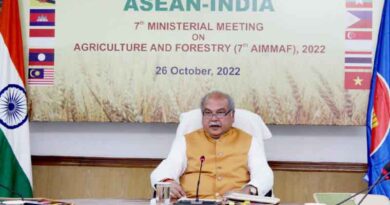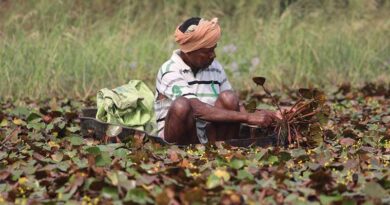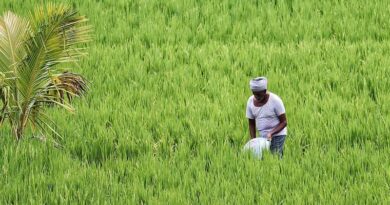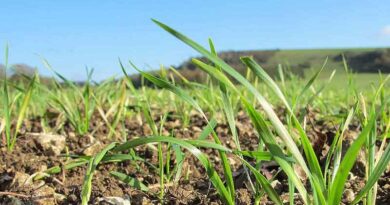Launch of Kisan Mazdoor Commission (KMC) to Address Agricultural Challenges
29 March 2024, New Delhi: In preparation for the upcoming general elections, the Press Club in New Delhi recently witnessed the unveiling of a new commission called the Kisan Mazdoor Commission (KMC). The primary objective of the KMC is to address the underlying structural issues in agriculture that have been plaguing the sector. It aims to go beyond the recommendations of the Swaminathan Commission, taking into account the challenges arising from increased corporate control over the supply of farm inputs, leading to rising production costs for farmers, and the impact on agricultural produce markets, resulting in a loss of income for farmers.
The KMC emerged from discussions among experts, farmers, labor unions, and farm workers’ unions under the banner of ‘Nation for Farmers’ before transforming into an independent commission. Unlike other commissions, the KMC aims to involve workers and farmers themselves in agro-policy discussions. Jagmohan Singh has been elected as the national convenor, and other members include Vijoo Krishnan, Navsharan Kaur, Roma Malik, Dinesh Abrol, P. Sainath, Thomas Franco, and Nikhil Dey.
The KMC’s “Agenda for 2024” focuses on studying various aspects such as the rising cost of production, income enhancement, trade and investment (WTO and FTAs), rural credit and insurance, common pool resources, ecological challenges, food and nutrition, women farmers, and rural non-farm enterprises.
Senior journalist and Ramon Magsaysay awardee, P. Sainath, expressed his concerns over the dismissal of M.S. Swaminathan’s significant contribution, the Swaminathan report on Minimum Support Price (MSP), while highlighting the government’s use of aerial drone warfare against farmers during peaceful protests. He criticized the government’s response to the farmers’ movement, stating that the offered package was a disguised form of the farm laws and that the expansion of MSP to five crops would actually result in a reduction when compared to the current 23 crops.
The KMC also aims to address issues such as the Electricity Amendment Act, policy on water as a basic right, pension schemes, Forest Rights Act implementation, MGNREGA implementation, fisheries policies, rain-fed dryland agriculture, climate crisis, biodiversity loss, and seed systems.
Special consultations are planned to discuss land rights for women farmers, including women agricultural workers, the rights of rural labor encompassing basic rights beyond wages, and the interconnectedness of the agrarian crisis, environmental degradation, and climate crisis.
Navsharan Kaur, leading the research on women within the KMC, highlighted the gender disparity in agriculture, where women, despite constituting about 60% of the workforce, own minimal land and are often not recognized as farmers. She emphasized the need to address this inequality, advocating for increased access to resources for women in agriculture, land redistribution to poor and landless women, and the creation of food and vegetable areas to improve nutrition. KMC has also established various working groups to tackle different issues related to the cost of production, income sources, investments, farming systems, agricultural research and development, agri-digitalization, rural labor, nutrition and food safety, commons, trade and investment, credit, and insurance.
Dinesh Abrol, another member of the commission, highlighted the root cause of the agrarian crisis as the takeover of public sector institutions by domestic and foreign corporations. He cited examples such as Amazon collaborating with the Ministry of Agriculture on agriculture extension, indicating the rapid corporatization of agriculture. He stressed the negative consequences of this trend, including increased chemical usage and input dependency, which burden farmers and harm the country’s ecology.
The Kisan Mazdoor Commission (KMC) represents a significant effort to address the complexities and challenges faced by agriculture in India. By bringing together experts, farmers, and labor unions, the commission aims to influence policy, promote equitable access to resources, and find sustainable solutions for the betterment of farmers and rural communities.
Also Read: The Benefits of Using Microfertilizer
(For Latest Agriculture News & Updates, follow Krishak Jagat on Google News)

